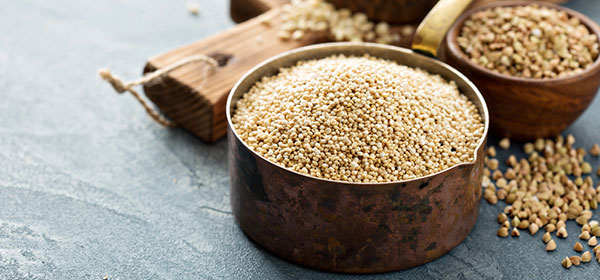In the wake of the increasing number of people buying gluten-free (GF) goods, the Federal Government is being called upon to consider a subsidised medical-foods program for those with coeliac disease.
This request follows a recent study showing that for a family with two children, the costs of having a GF diet is up to 17 per cent more than a standard diet, with GF bread costing nearly five times more and GF flour being 570 per cent more expensive than plain flour – so even making something from scratch can be outrageously expensive.
Additionally, the study found that a single man on welfare took a “significant hit” due to the higher prices of GF foods, spending 75 per cent of his welfare income on gluten-free products, in order to get enough calories in his diet.
The study was conducted in Australia, at the University of Wollongong, and compared the weekly cost of a trolley of gluten-free goods with a regular weekly shopping basket, for which data was obtained from supermarkets in five different suburbs in the Illawarra area south of Sydney.
According to the Dieticians Association of Australia (DAA), the study results “demonstrate for the first time that a gluten-free diet is a significant financial burden for many Australian family types.”
Read more at University of Wollongong and abc.net.au
Opinion: GF foods not the main issue
It would be easy for me say “what a whole lot of hogwash” to a government-subsidised medical-foods program for gluten-free foods. And, I guess, many would have that response. But, in all honesty, despite the complexities of delivering such a program, I can see a place for it for those one-in-100 Australians who have coeliac disease and must follow a gluten-free diet – without which they are likely to suffer serious health problems.
Nevertheless, for me, there’s a much more important food-accessibility issue than this, which affects all Australians – not just one per cent of the population. Many gluten-free foods are highly processed and many processed foods contain gluten – neither are great for our health. While on the other hand, most wholefoods are free of gluten – think milk, meat, vegetable, nuts, legumes and fruit. The only wholefoods that contain gluten are cereal grains, including wheat, rye, barley and spelt.
So when an avocado or head of broccoli costs more than a McDonald cheeseburger, surely as a society, we must ask whether we are seriously letting down our very own species.
In my opinion, higher prices for processed foods and lower-priced (or subsidised) wholefoods, would be a big step in the right direction. But no industry should stand to benefit financially from such a move – just we the consumers.
Would you support a budget move to subsidise GF foods? Would you be happy to pay more for processed foods – e.g. sugar tax on soft drinks – if it meant that wholefoods would be more affordable? Are you in favour of extending GST to all takeaway and ‘junk foods’?
Related articles:
Gluten-free diet myths
Is going gluten free a fad?
Coping with food intolerances

